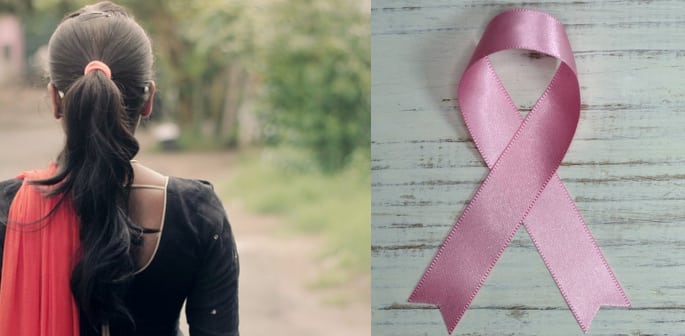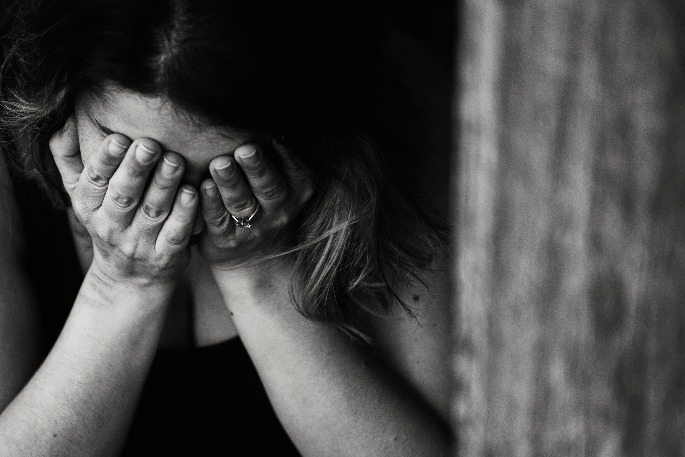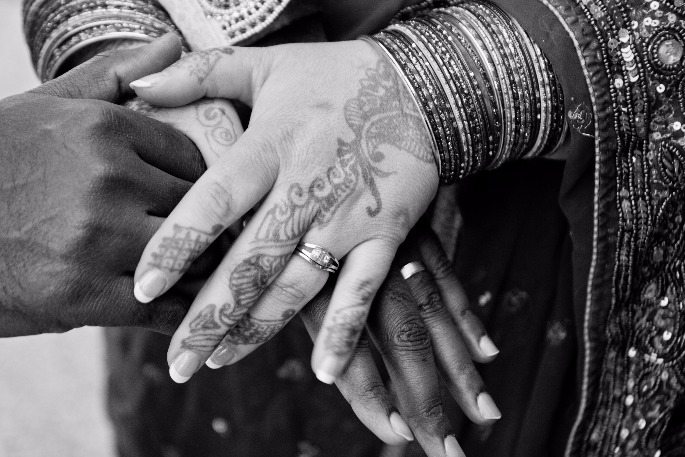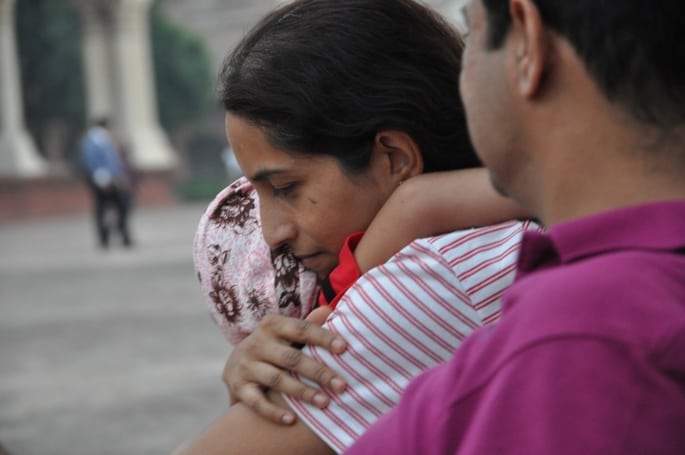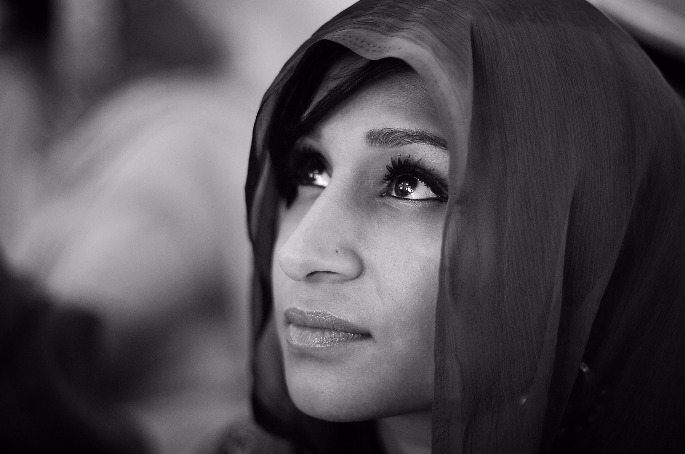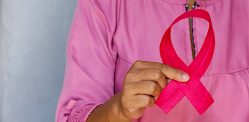there can be a notable lack of familial support for some British Asian women
Studies have shown that a number of British Asian women are hiding their cancer because of a cancer stigma in the British Asian community.
Breast cancer is the most common cancer for women, affecting one in nine in their lifetime. It accounts for 34% of cancers in British Asian women in comparison to 28% in non-Asian women.
Each year, 41,000 women develop breast cancer and on average 13,000 women die every year. While some studies find that breast cancer survival rates in British Asian women are similar to other groups, others record the opposite.
In a 2014 study by Bridgewater, British Asian women had a diminished survival rate of 3 years. Moreover, some research saw that incidence of breast cancer rose faster in South Asians than other groups.
The ageing and increasing British Asian population was a partial explanation, as well as diet and lifestyle changes. Nevertheless, if there is a cancer stigma, this rising incidence emphasises the importance of addressing it.
Concerning Trends behind the Cancer Stigma
There are already disquieting patterns emerging in the attitudes of British Asian women to cancer.
More research is necessary due to the comparatively recent introduction of the NHS Screening programme in 1988. Furthermore, hospital records did not collect data on ethnicity until 1995. Thus, both limit our ability to see the true extent of the issue.
Nevertheless, research in The British Journal of Science looked at data from 1986 to 1994 concerning 17,000 women in Yorkshire. 120 of these women were from a South Asian origin. Initial findings report British Asian women delaying their first visit to the GP when discovering abnormalities in the breast. They delayed visiting by two months. This was twice as long as non-Asians.
Other studies identify the higher likelihood that South Asian women come from a poorer background, which may impede their awareness of cancer. As a consequence of this delay, later diagnosis may alter or reduce their treatment options.
This is visible in the fact that 63% of South Asian female breast care patients undergo mastectomies. Whereas, 49% of non-South Asian patients needed mastectomies. Later diagnoses tend to mean larger tumours and reduce the viability of other options.
In this study, quick treatment after diagnosis led to a similar survival rate of British Asian patients to non-British Asians. But this is not always the case.
Also in this research in The British Journal of Science, a larger proportion of British Asians belonged to deprived socio-economic groups. The study then controlled for this to find that poverty and access to treatment wasn’t an issue. Therefore, this pushes us to look at the cancer stigma as a reason for these statistics.
Marriage Prospects and the Cancer Stigma
It’s an often repeated saying within British Asian communities that marriage isn’t just between two people, but two families.
British Asian women are unwilling to risk the marriage prospects of their children. Pooja Saini noticed this in her research. As the lead researcher at CLAHRC North-West Coast, she examines the experience of South Asian women and the cancer stigma.
If they reveal their cancer diagnoses, some women worry that no one will want to marry their children. This is presumably due to, in part, the hereditary nature of some cancers.
Some inherited gene faults can increase the risk of developing some cancers. For example, bowel cancer is the fourth most common cancer in the UK and 1 in 20 cases occur with a family history.
Comparatively, fewer than 3 in 100 breast cancers result from inheriting a faulty gene. Plus, there are tests for some of the faulty genes, like BRCA genes, which also contribute to ovarian cancer.
A lack of awareness may be responsible for this misinformation and from growing up in stricter communities. Some British Asian women found even talking about the disease shameful which would cause them to hide it.
Therefore, it’s crucial to normalise discussion about cancer both within the home and out of it. Indeed, support from peers within the South Asian community has been proven to help the experience of breast cancer survivors.
Perception of Women with Cancer in the British Asian Community
Issues also arise in the way we perceive the female body. As debates around public breastfeeding have shown, society too often categorises breasts as only a sexual organ.
Indeed, western society clearly struggles with this continual sexualisation of the female body. The actress and activist, Angelina Jolie, garnered immense praise for speaking out about her choice to undergo a double mastectomy. Owing to her family history of breast cancer, she reduced her risk of developing breast cancer as well as setting a precedent of publicly taking control of her own body, health and future.
Still, the British Asian community appears to experience even more obstacles to reducing the stigma. Female interviewees corroborated this in a 2017 BBC Victoria Derbyshire programme.
Breast cancer survivors discussed the cultural expectations of wives with the smear test bringing up fears of being “no longer pure” or having been “defiled”. Other women even worry that the test would “stretch” them.
The idea of the husband’s complete ownership of the female body is putting too many women in harm’s way. While the smear test isn’t a direct test for cancer, it discovers any abnormal cells that may become cancerous.
Pooja Saini echoed these problems when discussing some of the more shocking misinformation that she has come across. This included the idea that cancer doesn’t happen to South Asian women. Women also thought that the smear test could prevent marriage as they would lose their virginity or “proof” of virginity.
Sadly, there can be a notable lack of familial support for some British Asian women. Instead family and friends will tell them to stay “strong” for their husbands and children. Some husbands are even unable to cope with their wives’ cancer diagnosis.
Cultural Expectations
The burden of cultural expectations is particularly obvious when examining the experiences of South Asian women with cancer. A study noted problems with self-image, nerve damage, pain, cognitive changes, depression and fatigue.
However, South Asian women had particular concerns about their fertility and the impact on their marriage. Regardless of age, participants spoke about the importance of childbearing in their community and how they felt added pressure as a consequence.
For instance, Pravina Patel hid her cancer diagnosis from her family. During her chemotherapy treatment, she divorced from her husband. She believes the reason for the divorce lies in the cultural expectations of how a wife should be.
In fact, some female cancer sufferers still encountered the pressure of maintaining childcare and housekeeping duties during treatment or resuming these duties immediately after.
A stigma also exists from the belief that cancer diagnoses are a death sentence. Because of a lack of awareness and lack of attendance at screening programmes, later diagnoses are perpetuating this belief.
Faith and cultural beliefs aren’t always a hindrance.
Some studies record good community support and find South Asian women to be unique in showing a “quiet acceptance”, sometimes finding solace in faith. This can allow them to cope better with their diagnosis.
Yet there is still the barrier of others assuming that the cancer is a punishment from God. Research finds that this cancer stigma comes from a belief in karma and therefore the cancer is evidence that these women have been living a bad life.
Role of Men in Reducing the Cancer Stigma
Of course, men have an important role in reducing the cancer stigma.
Pooja Saini observes that men in the family influence access to treatment as they dictate women’s attendance for screening.
She said: “If they didn’t think women should go for screening, then they didn’t go.”
This is potentially due to a lack of knowledge of the usefulness of smear tests or mammograms, rather than malicious intent. But their support could also be essential in supporting women who are reluctant to seek help because of their own fear.
Therefore, creating awareness and conversations about cancer in the South Asian community is vital.
A strong support network is invaluable in difficult times and male partners and family members can provide crucial emotional as well as physical support.
The stigma surrounding cancer makes this an extremely lonely experience for British Asian women. It’s terrible to see so many British Asian women hiding their cancer and suffering an already difficult process, alone.
However, with women like Pooja Saini consolidating research and looking to change the experience of British Asian women, there is hope for the future.
It’s crucial to correct some of the harmful misinformation surrounding cancer. Plus, improved services for supporting and understanding the origins of these and other cultural issues will clearly make a difference in the lives of many British Asian women.
Nonetheless, it’s clear the real change has to come from within the community. It’s only by normalising discussions around women’s health, bodies and roles that we can reduce the cancer stigma.
If you need help with health concerns, contact your GP, NHS help or BAME organisations such as UK Black Asian Minority Ethnic for support.



















































